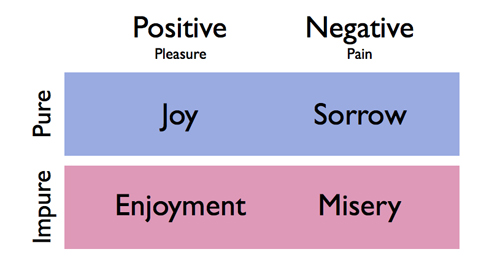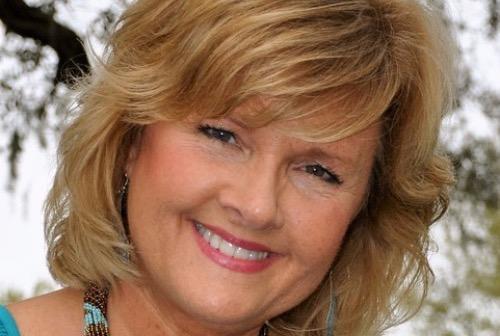Well, sorry, guys, but I was shot down on making a vlog of my camping trip. Too many camera shy people. 🙁 We did have a great time, though. The weather wasn’t the best, but the company was. I think the highlight of the weekend was our sighting of big cat paw prints near a pond. I mean that sucker must be huge. Mountain lions are very elusive, at least around here, so any tangible evidence of them is precious fun. I read up on Castroville, TX on Wikipedia and found out that it’s only 2.5 square miles with a population of around 2,600. An empresario brought over around 350 people from Alsace through Galveston Bay. Alsatian is the language that predates German, and there are a few old folks there that still speak it. One of the most interesting facts is that they do list one notable person from the town: Alexis Texas, adult film star. I thought that was funny.
Me: Let’s say somebody has a terminal disease, and they’re leaving two young children behind. That’s suffering!
Erik: They have a what disease?
Me: A terminal one like pancreatic cancer that’s spread all over the place.
Erik: And the suffering part is what?
Me: Well, knowing you’re going to leave your children and suffering because it’s painful and you feel like crap.
Erik: Let’s narrow it down. You have a terminal disease, and you know it’s not going to be cured by medicine, and it’s the great fear of leaving your children.
Me: Yeah.
Erik: The suffering part would be wanting to leave beyond your extinction, right?
Me: Mm hm.
Erik: Well, there’s—
(Pause)
Jamie: I’m asking him to clarify what he’s saying.
Erik: If I were in that position, and we’re not looking at fighting the cancer; we’re looking at not existing beyond the point of extinction and being away from your kids. First of all, when you die, you’re going to find out that that’s totally bogus, so you’re going to be relieved, but we’re looking at the human suffering before you even die.
Me: Yeah.
Erik: You can look at ways of extending your life beyond where you are, writing letters to be delivered, sending flowers years past your death. You can look at photographs, storytelling and logging it down. These things can all mend the heart a little bit when it comes to knowing you won’t be around. But normally, suffering is knowing what you can’t have, so let’s say the father wouldn’t get to see his children get married or have children or things of that nature. Of course the suffering is going to be short lived because, like I said before, as soon as he dies, da-ding, it’s all gone, but during the living part, the true part of it wouldn’t be about not being there with his children. It’d be more about not being able to be in control. You wouldn’t be in control of your life or your existence so it’s suffering because you can’t surrender. What was the point of this again?
Jamie looks at Erik and laughs.
Me: What about the children, watching your children suffer? They know that you’re going to pass on, and it would be heartbreaking to see them suffer like that.
Erik: But Mom, that would fall under compassion. That wouldn’t be under suffering because if you’re feeling what they’re feeling, when you connect in a compassionate, empathetic way, you can’t be in control of what you’re feeling.
Me: But empathy—you’re suffering because they’re suffering.
Erik: No, that’s kind of bogus.
Jamie laughs at Erik’s choice of words.
Jamie (To Erik): So is all suffering bogus as you say? I can’t believe you used that word.
Me: I know! The 80s called and asked for their word back.
Jamie laughs.
Jamie: That’s awesome! Busted. That was good.
Erik: In getting to the root cause of suffering, it is all self-created. It’s not really a true experience because you only look at you and stay in that vicious cycle, you can’t see the opportunity to get out of it. It’s serving you somehow. So if you’re suffering because your children are suffering or you’re suffering because you’re dying and you won’t live beyond, and the children see you suffering and give you special attention so it all feels good, and everyone is wallowing in it together. It’s support, camaraderie, “we’re all on the same page with the same emotions.” You gotta decide: Is that really what you need? Or are you needing something different, but you don’t even know how to ask for it?
Bella almost falls off of my desk.
Jamie: Oh!
Me: Sorry about that. We’re having Yorkie problems. She’s crawling on my computer, minimizing my screens and all sorts of stuff. Stay, Bella. Stay. Lie down.
Jamie chuckles.
Me: All right, let’s use one more example, and then we’ll go on. You want to think of an example Erik? Jamie?
Erik: Suffering. Let’s take love. Let’s say you fall in love with someone, and she falls in love with someone else, marries him and she’s gone. There you are, left to suffer in knowing she was your soulmate, but you could no longer have her.
Me: Mm hm.
Erik: Or let’s say you fall in love with her, and then she dies.
We’re a cheery lot, aren’t we?
Erik: You don’t get to marry her, be with her, that kind of a thing.
Jamie: Yeah, that’s really happy, Erik!
I make the Debbie Downer sound effect.
Erik: But this does happen, that unfinished disconnect, this suffering that this is no longer here anymore. It keeps them looking at themselves and what they could have done, what they could have said—the world of coulda, woulda, shoulda—and that doesn’t help you stay in the present. It helps you stay in the past and future to dream about what could have been. So you’re throwing your energy into places that don’t even exist. So if we were talking about letting go of the suffering, it’d be about staying in the present and recognizing that you were your best version in that moment and you did what you could, that that is your story, and that you cherish the moments that you did have with her. What suffering could provide you is that you see the value of love or the value of each moment and how important they are—if you were to miss one moment, what kind of life would you have had? You know, you missed that moment by the car when you should have said, “Don’t go. I love you. Stay.” But you sent her away, and then there was the car crash. So you could use that as a catapult to take you out of the suffering moment because every action that you did beyond that suffering would honor that love that you have, would honor that life, would honor any other kind of situation you’re in because you see how you’ve changed from it.
Me: Okay. Is that it?
Jamie (smiling): Yeah, he’s pretending to play violin.
Me: I know! Really! So Erik, one more question—or maybe two—you suffered a lot when you were here. Did you enjoy it?
Erik: I enjoyed the solitude of it.
Me: Mm. I could see that.
Erik: Because there were no other humans, no other opinions telling me how it should be, what I should be doing and what I did wrong. Falling into the quietness was quite comfortable. That was the joy that I got from it, but it was quite confusing with the disease, with being bipolar, on what part of me to side with.
Jamie: Does that make sense?
Me: Mm hm. I guess. After a couple of sips of coffee and listening to it again, I probably will. So do you miss it? Do you miss suffering?
(Pause)
Me: And do you create it for yourself or pretend to create some sort of contrast?
Erik: No, I don’t really long for the suffering part anymore. When I need to be challenged or need to look at myself differently, it’s presented directly at me. It doesn’t come from a “lack of” experience or a hardship or challenge.
Me: Okay.
Erik: That’s just not the way it is over here. I know that’s hard to comprehend because we’re used to having the hardship to get to the joy, but here, if we’re learning to expand or remembering to grow, it shows up for us. It comes to us. Think of magnets. It builds from there.
Me: Okay.
Bella is all over the place.
Me: God, this Yorkie is driving me crazy. We’re having Yorkie issues today, guys!
Erik: It’s like bad weather.
???
Jamie: He liked Super Yorkie before when she was flying over the camera.
We all laugh.
Me: Well, thank you so much, Erik! Thank you, Jamie!
Jamie: You are welcome.
Me: That was awesome.
*********
Here’s another great review! If you haven’t read Erik’s book (or listened to the new audiobook!) then click HERE.
This is the second book written by the author and her son, along with the help of spirit translator Jamie Butler. I have read and loved both. The subject matter was very thought provoking as Erik shares his experience of the afterlife. I could feel Erik’s love through out the book. I believe this book is good for any reader. Whether you believe or not (and I do) there is something positive that will find you by the end. I didn’t want to put this book down. My suggestion is to kick back, relax, and let this little piece of heaven touch you. You won’t regret it.
–Carol Meinhardt




